Drama in the dunes: Dakar 2024
Bikes, quads, trucks, cars, classics and a clash of the Titans between Audi and Prodrive. As Henry Hudson tells, the 2024 Dakar Rally served up some serious action in the Saudi desert
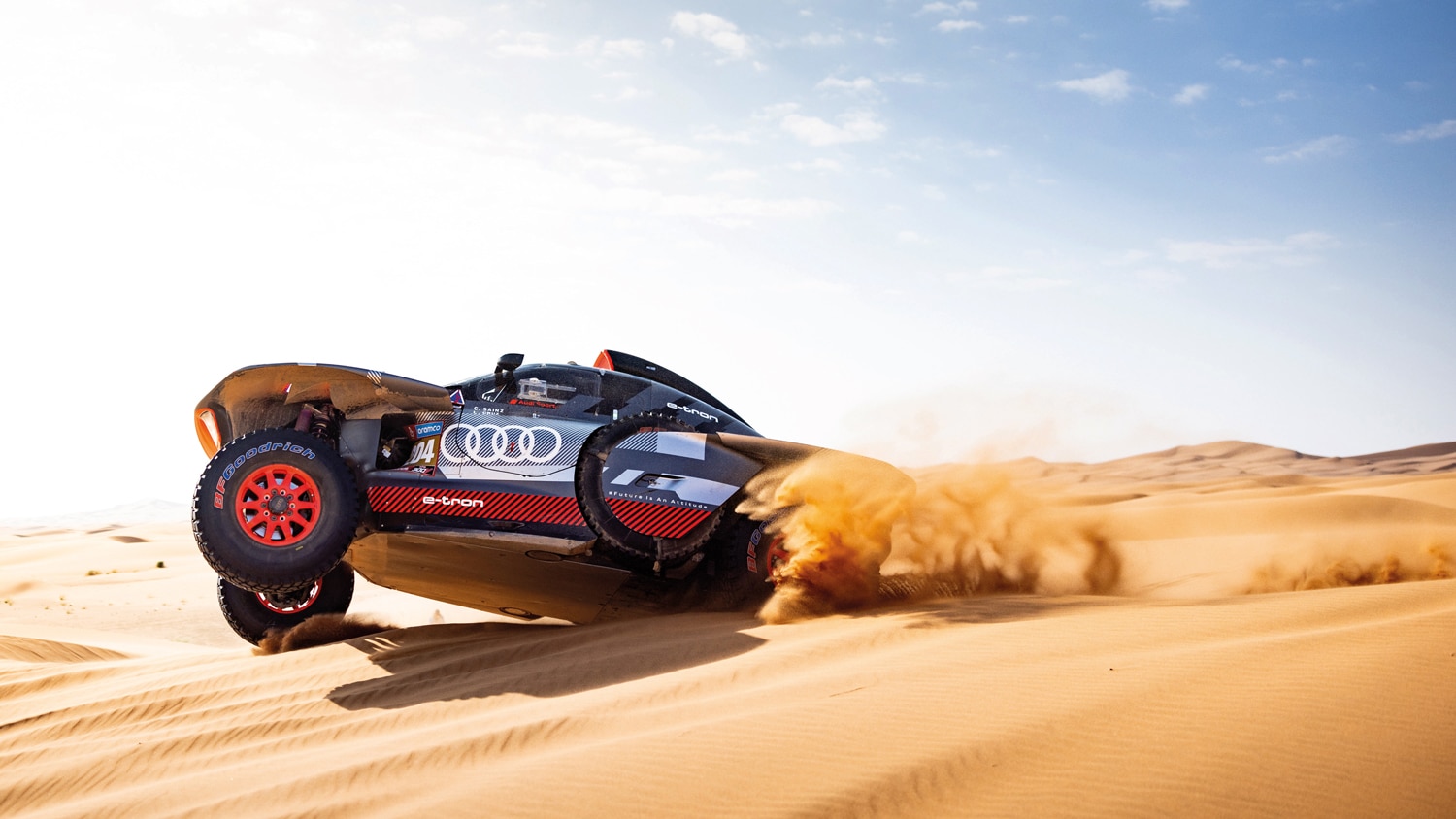
ASO/C Lopez/Marcelo Mechado de Melo
As the UK braced itself for a January freeze to kickstart 2024, the eyes of the motor sport world shifted instead to the sands of the Saudi Arabian desert, as rally royalty and automotive giants descended upon the Middle East kingdom to begin battle against the forces of nature in the Dakar Rally.
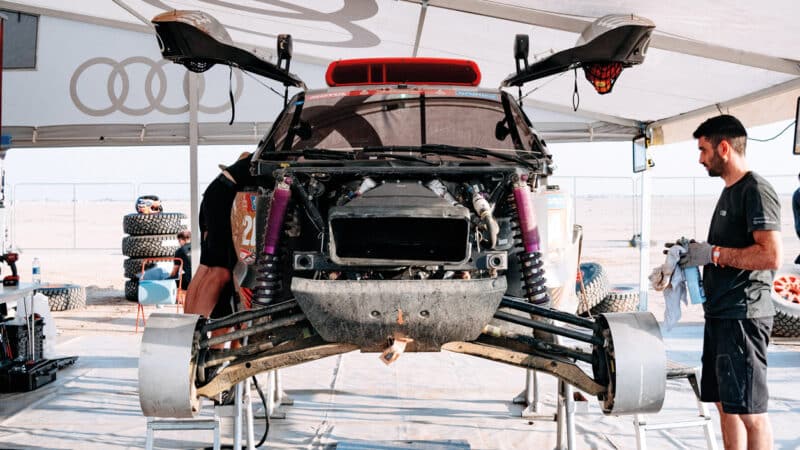
Attention to an RS Q e-tron in Audi’s bivouac between Al Henakiyah and Al Duwadimi
ASO/A Vincent
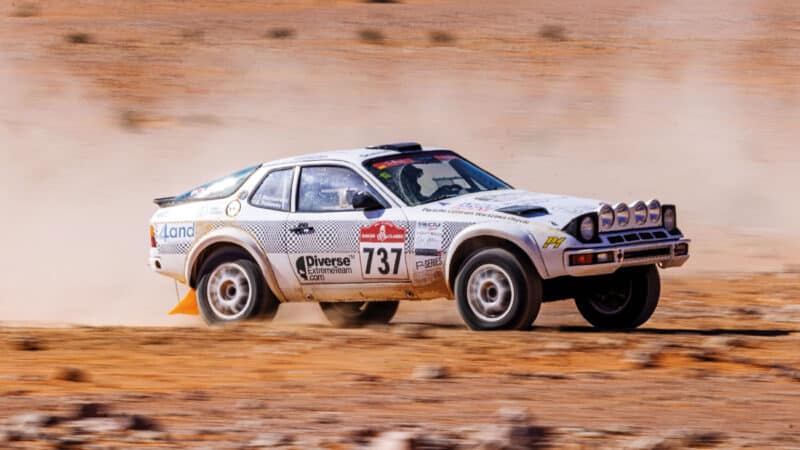
The Polish P-Rally Porsche 924 in the classic race
ASO/A Vincent
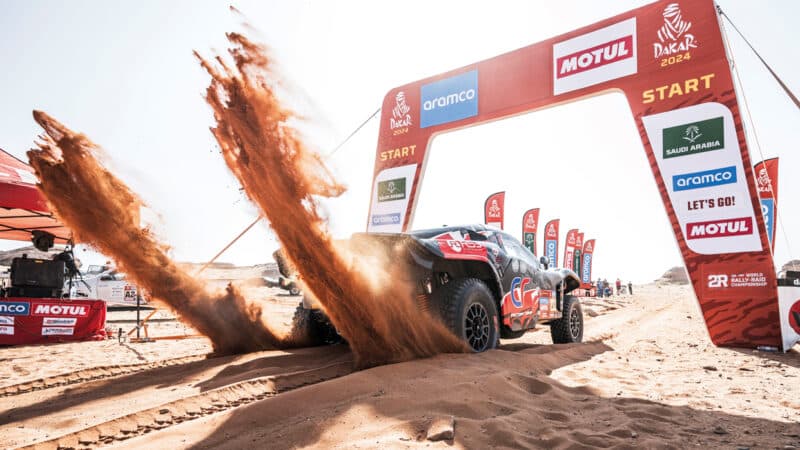
Century’s CR6-T makes a fan-friendly start on stage one
C Lopez
This year’s edition of the rally began from the city of AIUIa to the finish in Yanbu situated on the coast of the Red Sea. The nearly 5000-mile route saw drivers contest with towering sand dunes and perilously rocky terrain. Over 1000 entrants across eight categories, ranging from bikes and quads to nine-tonne trucks, took to the start line, preparing themselves for 15 days of gruelling racing and near-insurmountable challenges. Who would survive to become the masters of the Arabian Desert?
The headline battle heading into the rally was between Audi and Prodrive in the new Ultimate car class. Carlos Sainz Sr spearheaded Audi’s attempt for glory in the upgraded Audi RS Q e-tron. ‘El Matador’ had won the Dakar Rally three times already, with his experience gained during his 18 Dakar appearances serving him well during the greatest tests the rally can offer. This year could be Sainz’s Dakar finale, as Audi’s future in the rally stands uncertain and the 61-year-old would have wanted to cap his illustrious Dakar career with nothing less than a win.
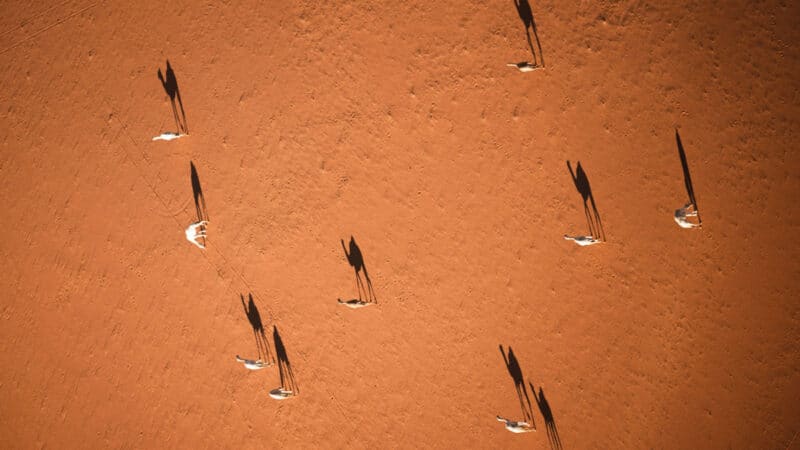
Camels!
C Lopez
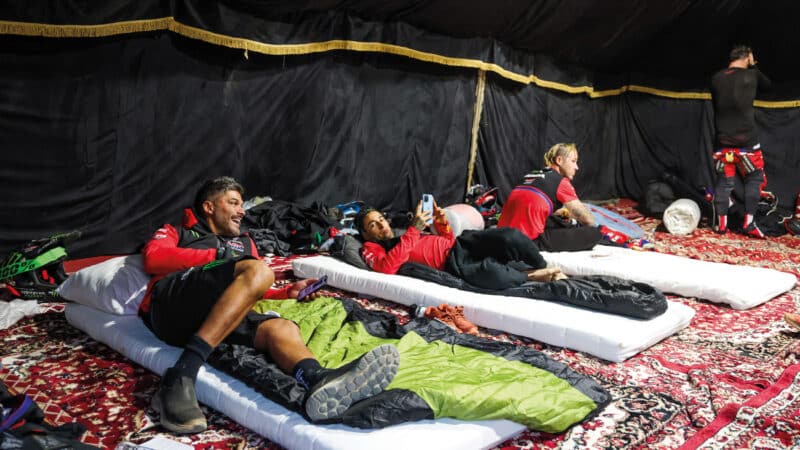
Honda riders Pablo Quintanilla and Nacho Cornejo take the weight of their feet
DPPI
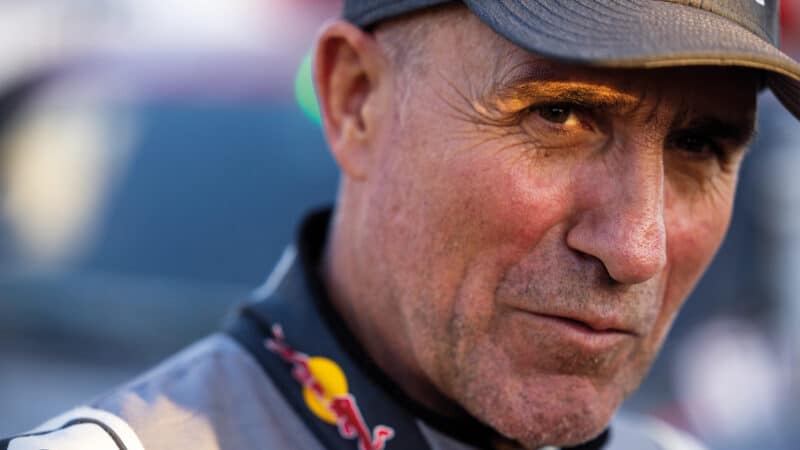
Audi’s Stéphane Peterhansel has been a Dakar Rally regular since 1988
DPPI
Challenging the might of Audi and Sainz was the Prodrive pairing of two of the greatest drivers in rally history – nine-time WRC champion Sébastien Loeb and five-time Dakar (and reigning) champ Nasser Al-Attiyah. The duo headlined a seven-car all-out attack on Dakar by the British manufacturer, which was hoping its powerhouse line-up would be enough to halt the electric-motored Audi and perhaps more importantly that Loeb would avoid the dreadful Dakar luck he has suffered in recent years.
“Punctures disrupted Sainz and Al-Attiyah in the early stages”
Originally founded as the Paris-Dakar Rally by maverick racer Thierry Sabine, the inaugural rally took place in 1979 and saw 182 vehicles take to the start in Paris for a 6000-mile dash to the Senegalese capital Dakar. Only 74 of the original runners made it to the end, cementing the brutal and unforgiving nature of the event that would earn its notoriety, further helped by the escapades of a certain Mark Thatcher in the rally’s early years. Security concerns meant the rally moved briefly to South America and then in 2020 to Saudi Arabia where it has now found a long-term home.
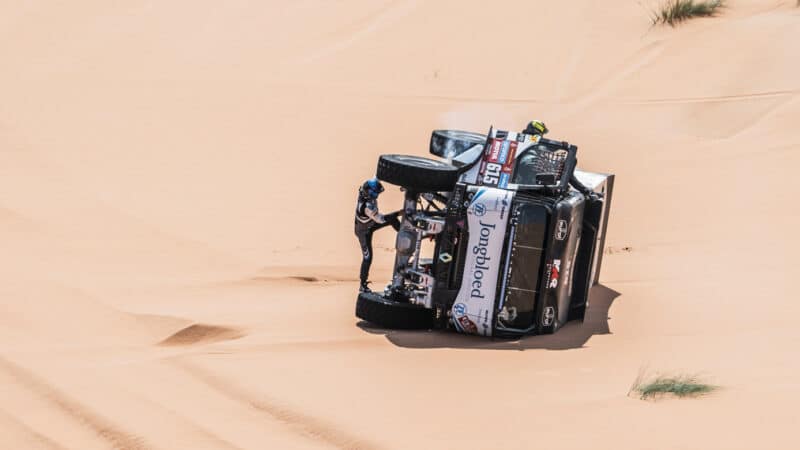
Gert Huzink’s aim was a podium finish with his Renault truck…
Charly Lopez
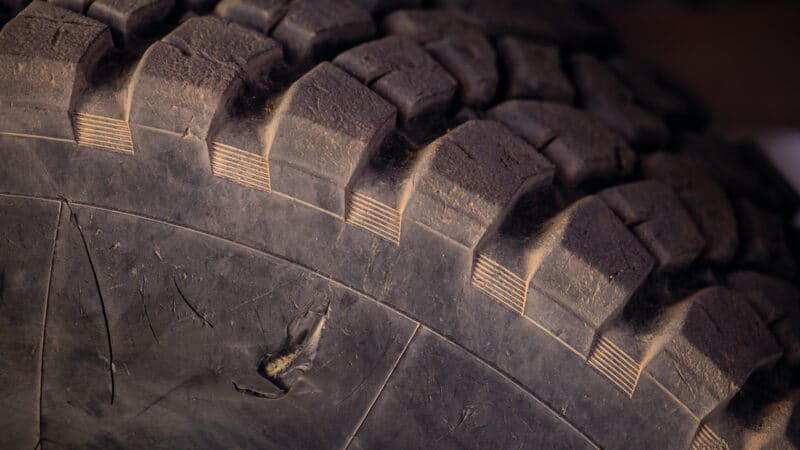
Sébastien Loeb’s tyre took a battering
DPPI
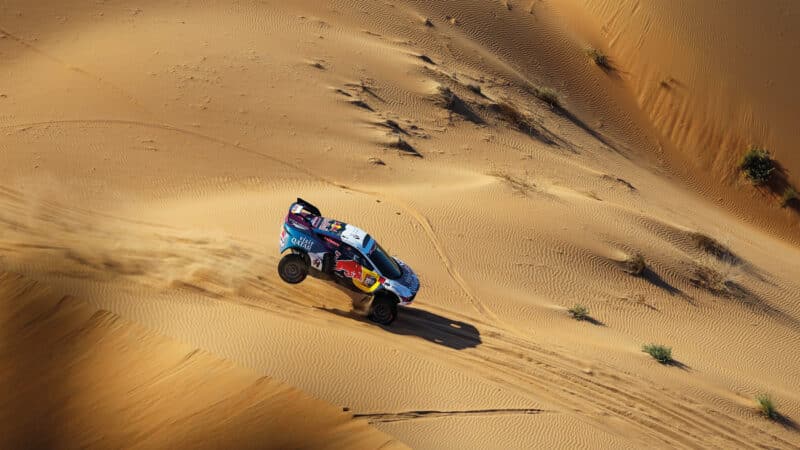
Nasser Al-Attiyah lost patience with his car
DPPI
This year’s event took little time to throw up its usual challenges, with punctures disrupting both Sainz and Al-Attiyah in the early stages. The problems would continue for the Qatari driver and during stage six of the rally, his Prodrive Hunter would grind to a halt after a hard landing broke the steering bearing, which meant a three-hour repair job and the effective end of Al-Attiyah’s bid for victory. On stage eight, his engine blew which was followed by a rear suspension failure on stage nine leading to Al-Attiyah withdrawing and declaring he didn’t want to drive his Hunter again.
“It shows that when you work hard, normally it pays off”
Meanwhile, for team-mate Loeb, fortunes started off kinder as the Frenchman took four stage wins to keep in touch with the leading Carlos Sainz, but with just three stages to go, Sainz’s lead still stood at over 20min. Characteristically, Loeb refused to give in and kept pushing flat out; but luck would soon run out for the front-running Prodrive racer when Loeb collided with a rock which destroyed his front-right A-arm causing a lengthy stoppage that ended his – and Prodrive’s – chance at victory.
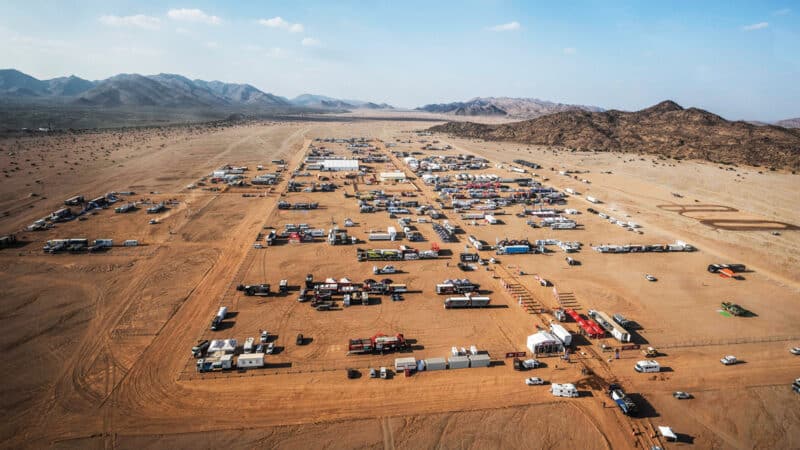
Stage one camp
C Lopez
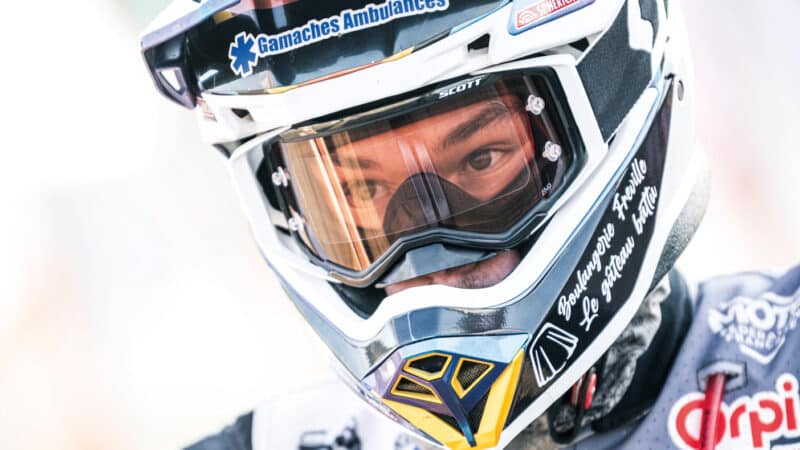
Full-on concentration, stage three
Charly Lopez
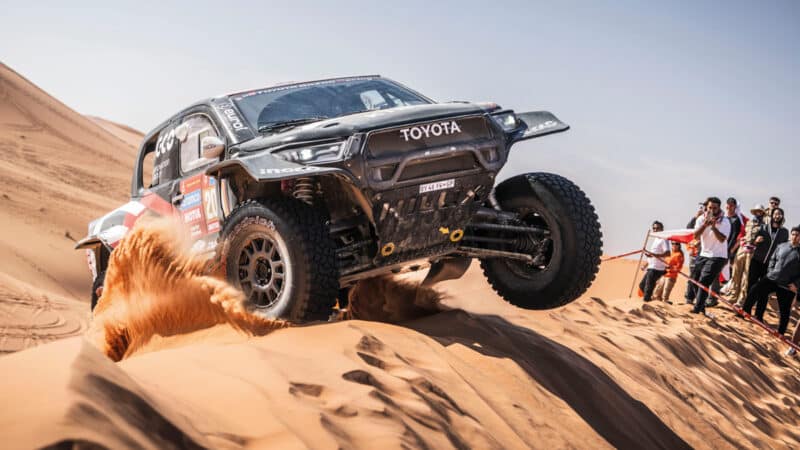
Toyota Gazoo GR DKR Hilux of Giniel de Villiers
C Lopez
And so, Sainz Sr nursed his Audi home to overall victory by a whopping 1hr 20min 25sec over the second place Overdrive Toyota of Guillame de Mevius, while Sébastien Loeb persevered to secure a podium finish in third. Despite not winning a single stage, Sainz Sr proved that consistency trumps all as he led the overall timings from start to finish. The decorated Spaniard broke his own record for the oldest driver to win, securing his fourth Dakar victory at a spritely 61.
“To be here at my age and to stay at that level, you need to work a lot beforehand,” Sainz said at the finish. “It doesn’t just come like that. It shows that when you work hard, normally it pays off.”

Sunset in the desert, which at this time of the year is around 5.30pm
DPPI
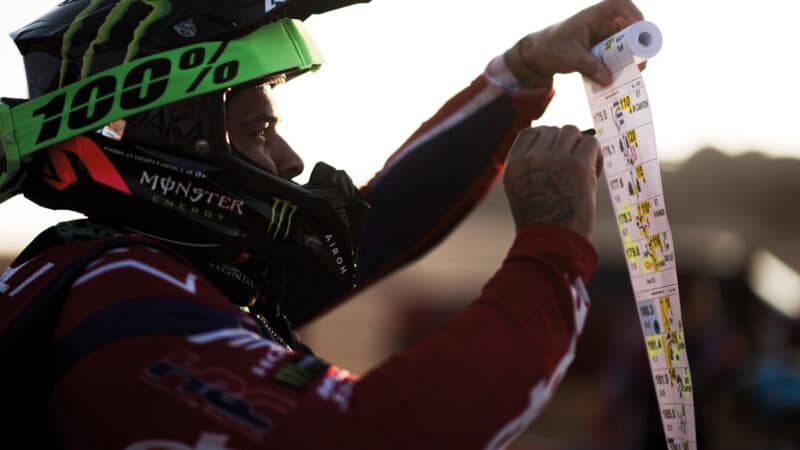
Honda’s Quintanilla checks his route on stage one – a gruelling five-and-a-half-hour trek
C Lopez
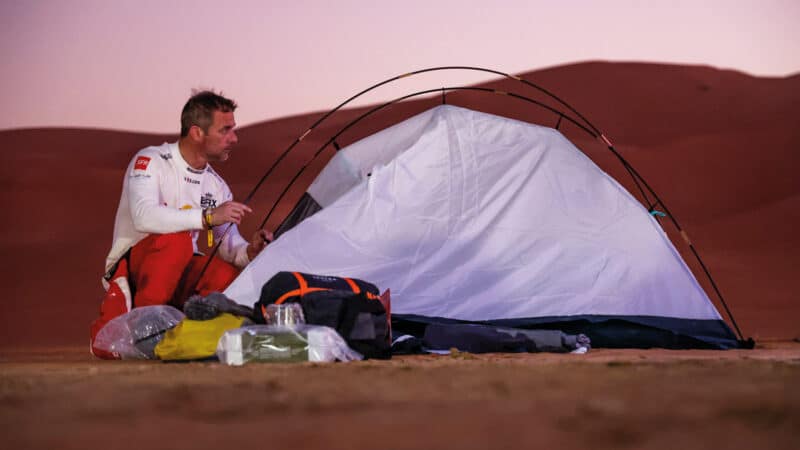
Loeb sets up his tent in the 48 Hour Chrono stage
DPPI
However, Audi’s inaugural victory may have been its last, with all signs pointing to the German manufacturer pulling the plug on its Dakar programme after this year’s rally so it can focus on its arrival on the F1 grid in 2026. We can only hope that Audi’s departure does not also signal the end of Sainz’s Dakar career.
Events in the bike category were overshadowed by the tragic death of Spanish rider Carles Falcón. The 45-year-old had been competing on a Rally2-Spec KTM when he suffered a terrible crash during stage two, succumbing to his injuries a week later.
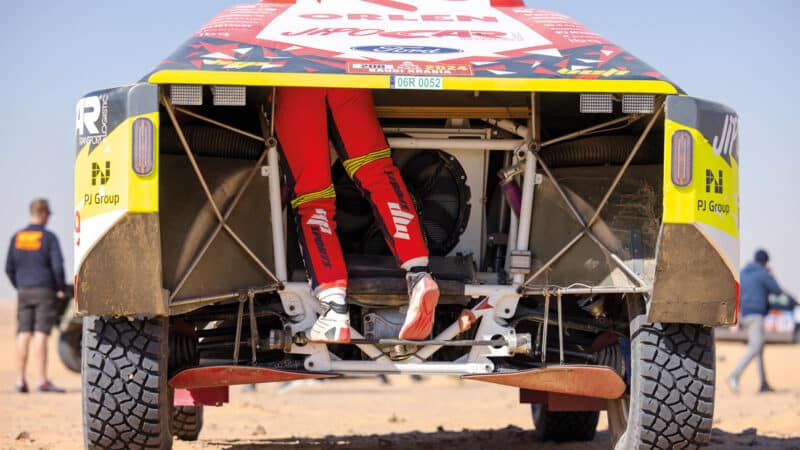
That’s Martin Prokop – or rather his legs
DPPI
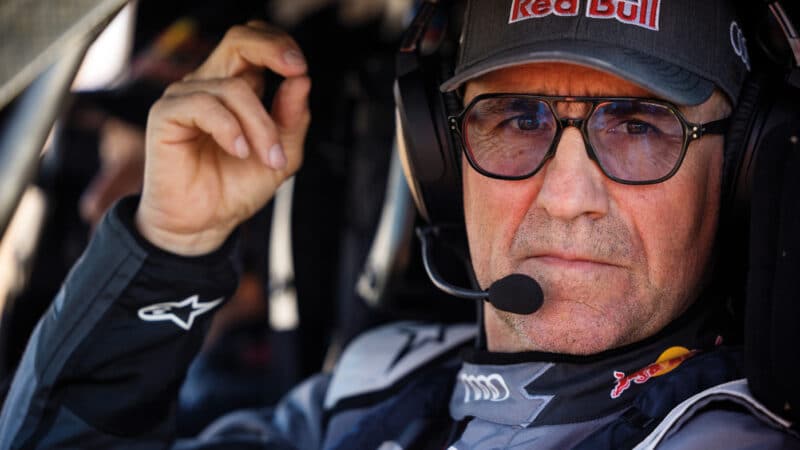
Peterhansel had a tough outing in the Empty Quarter
DPPI
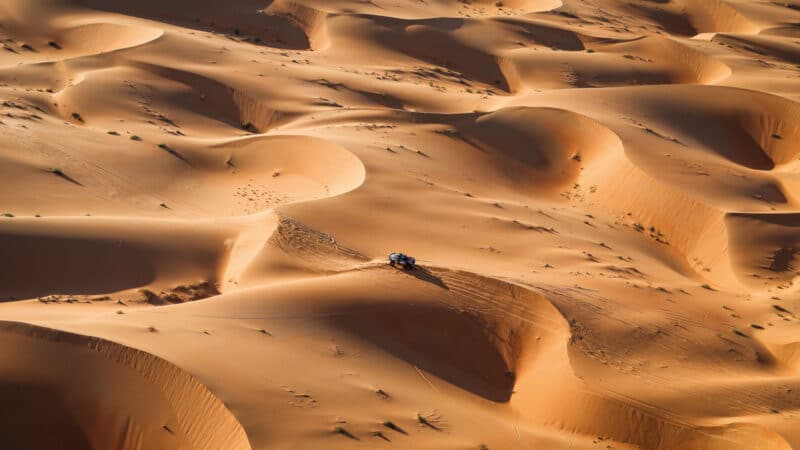
Audi’s Carlos Sainz skirts the dunes of stage five – 75 miles of them
DPPI
Ricky Brabec led the way in the bikes for the Monster Energy Honda Team, helping to secure an impressive Honda 1-2-3 at the end of stage 10 on the way to overall victory, with the American rider claiming his second Dakar victory.
Manuel Andújar, 2021 quad winner, secured his second class victory with the Argentinian denying Alexandre Giroud a third consecutive title while Martin Macik and his MM Technology Team achieved top spot in the truck category to bring an end to another historic rendition of this most gruelling of rallies.
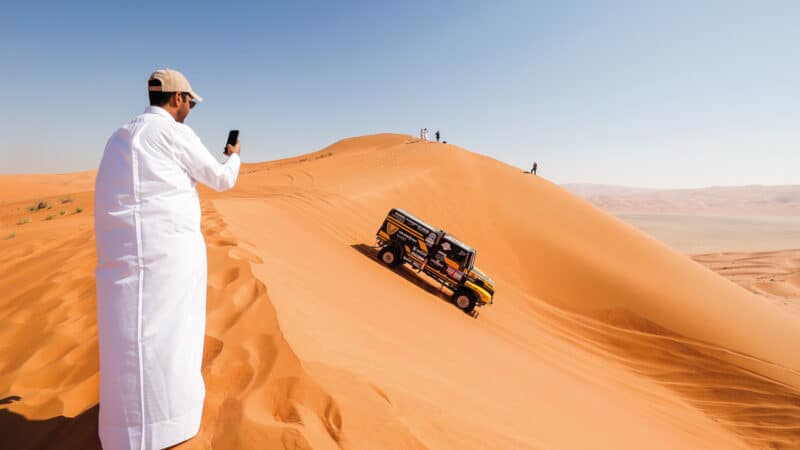
Dutch truck driver Vick Versteijnen’s Iveco powers on through the 48 Hour Chrono
DPPI
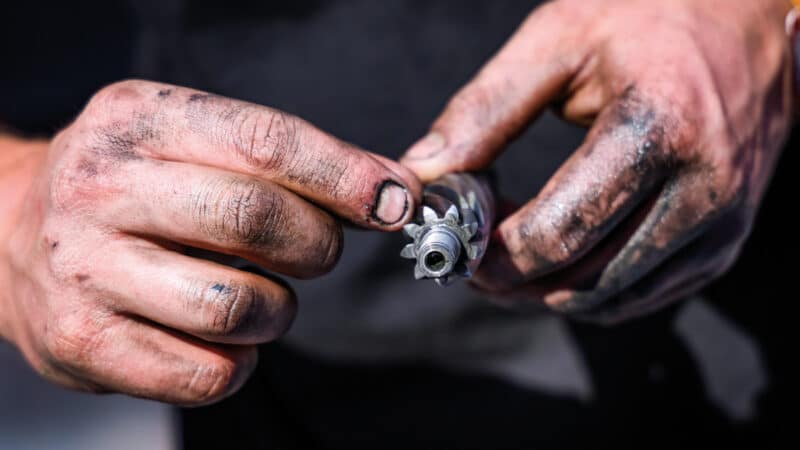
Dakar rest day, January 13
DPPI
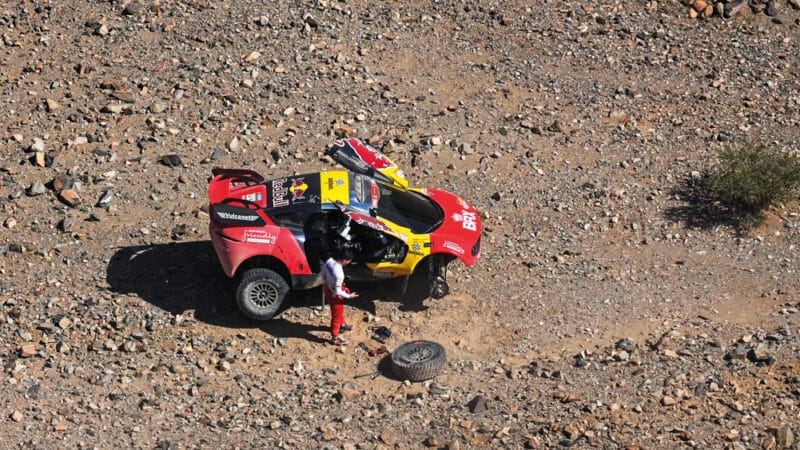
Mechanical issues for Loeb, stage 11.
DPPI
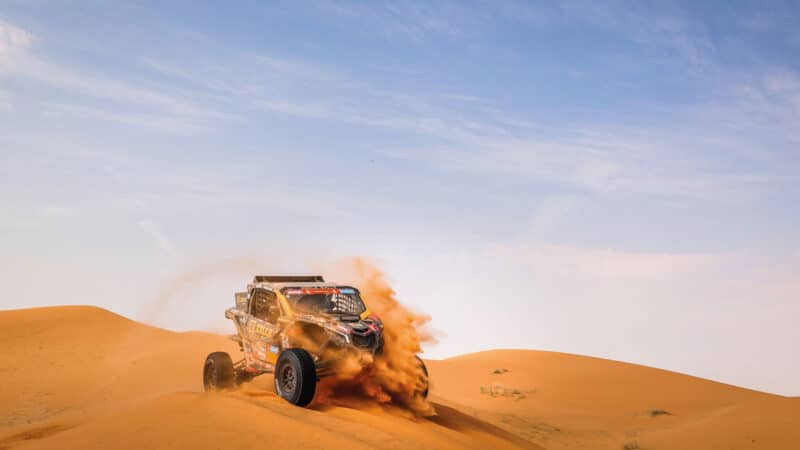
Sebastian Guayasamin’s Can-Am Maverick heading to Hail
DPPI
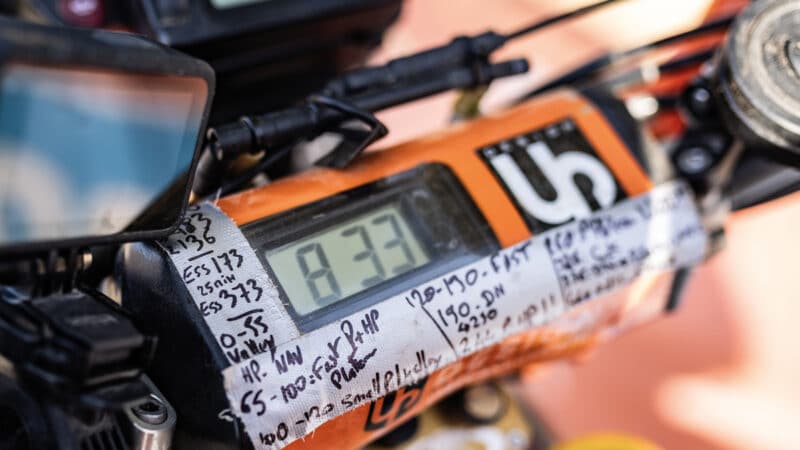
Further info courtesy pen and tape
DPPI
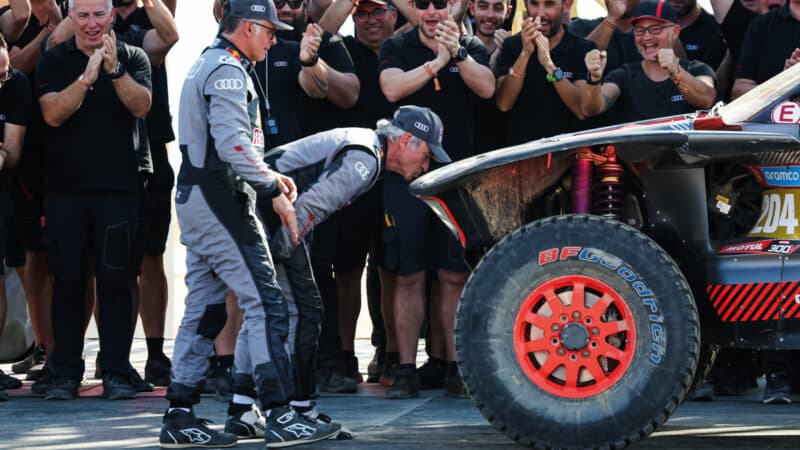
Audi bonnet-kisser Carlos Sainz and co-driver Lucas Cruz
DPPI
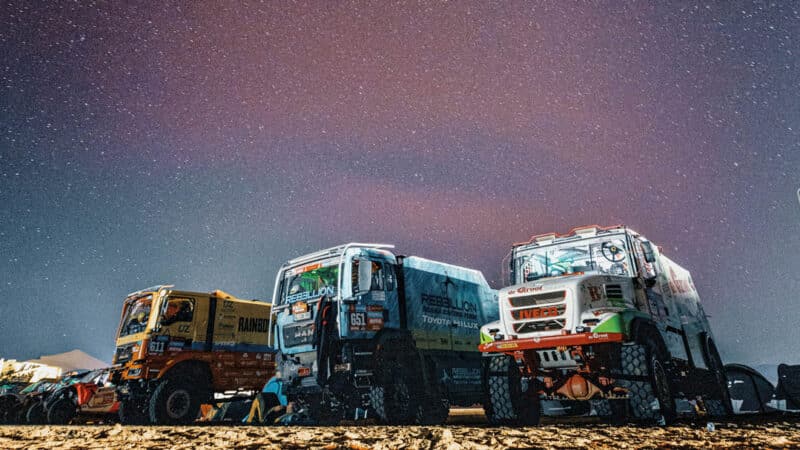
A stellar line up of Dakar machinery at Shubaytah, close to the border with the UAE
Marcelo Machado de Melo
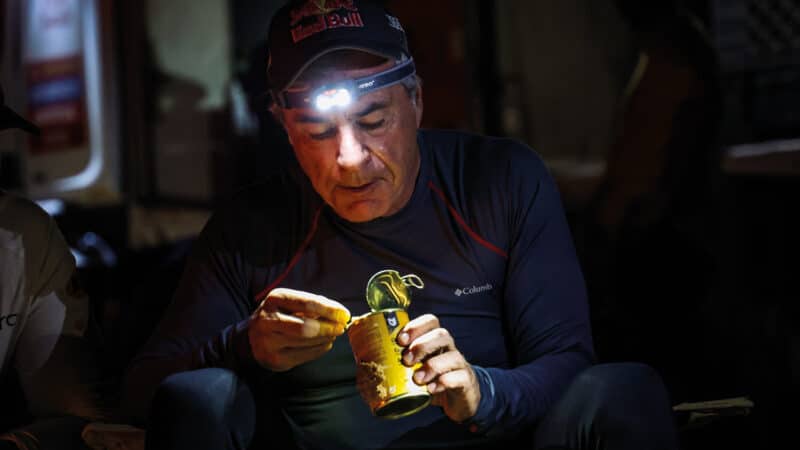
There were few luxuries for 61-year-old Sainz in the 48 Hour Chrono
DPPI
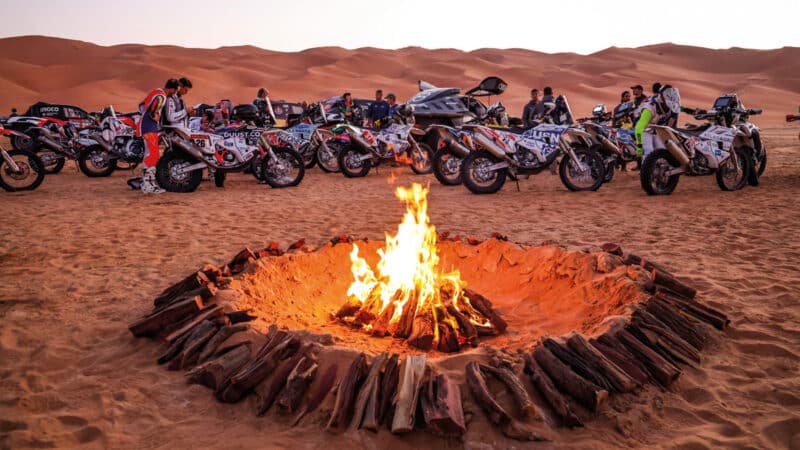
The evening temperature dips
DPPI
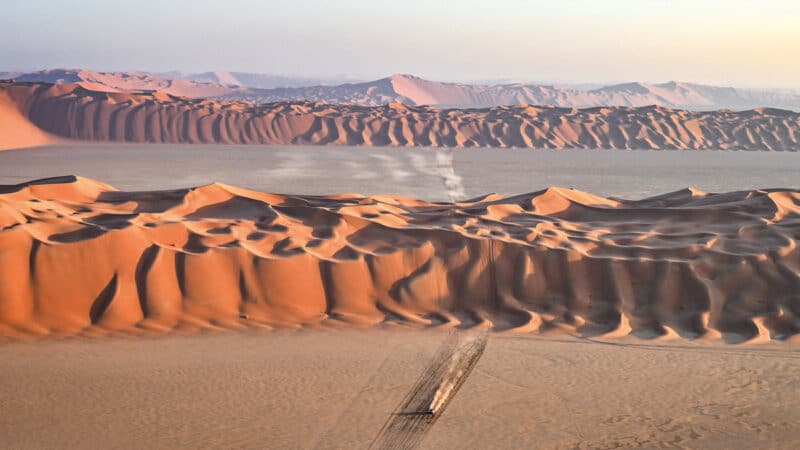
Keep in low gear: this image of Saudi Arabia’s Empty Quarter won the Émilie Poucan Award for Dakar 2024’s best aerial photograph
Émilie Poucan
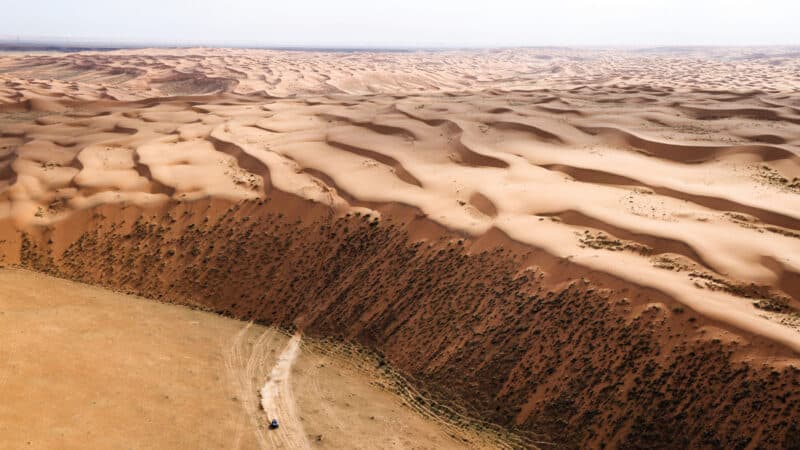
Lithunian driver Valdotas Zala picks up speed in his MINI JCW Rally Plus after a tricky boulder-strewn downhill section
DPPI
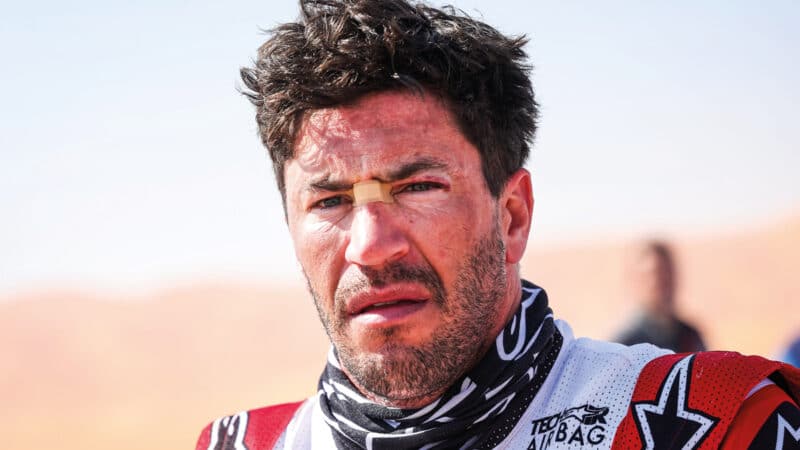
Rider Joan Barreda Bort
DPPI
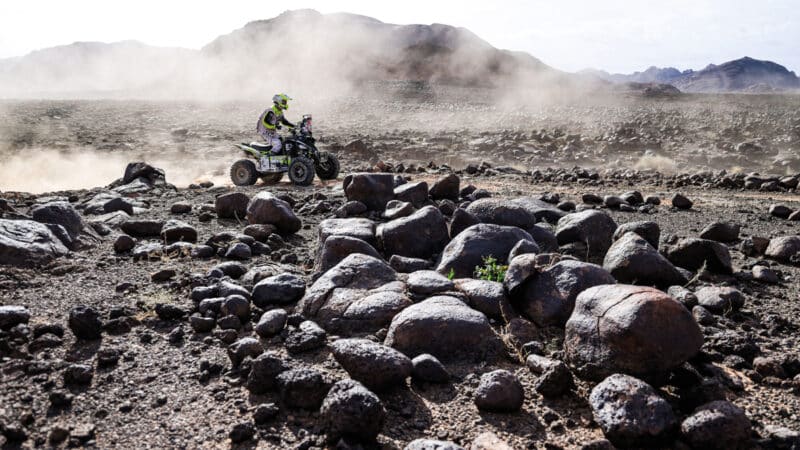
Alexandre Giroud tackles what’s described as stage eight’s “rocky portion”.
DPPI
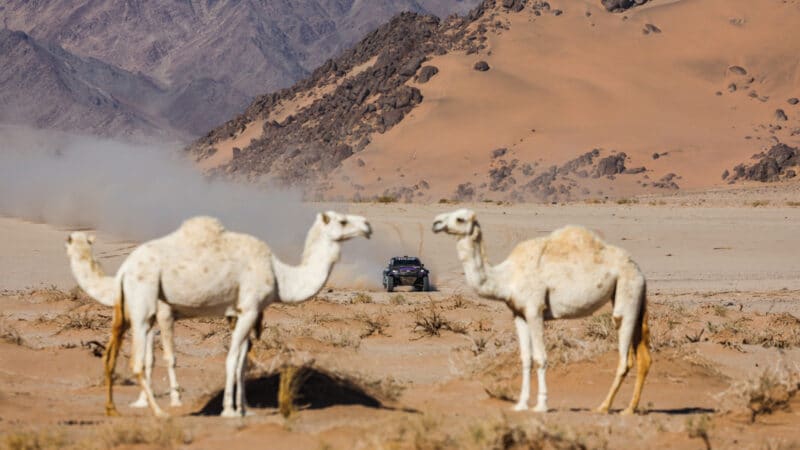
Hilux coming through
DPPI
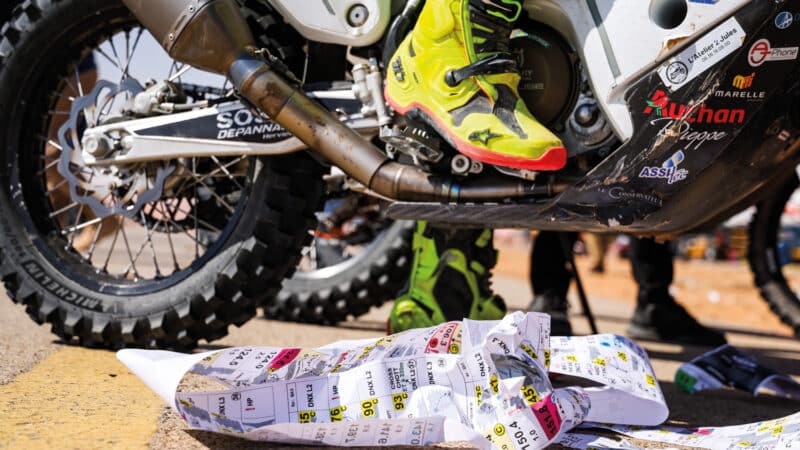
Waste bins not provided
DPPI
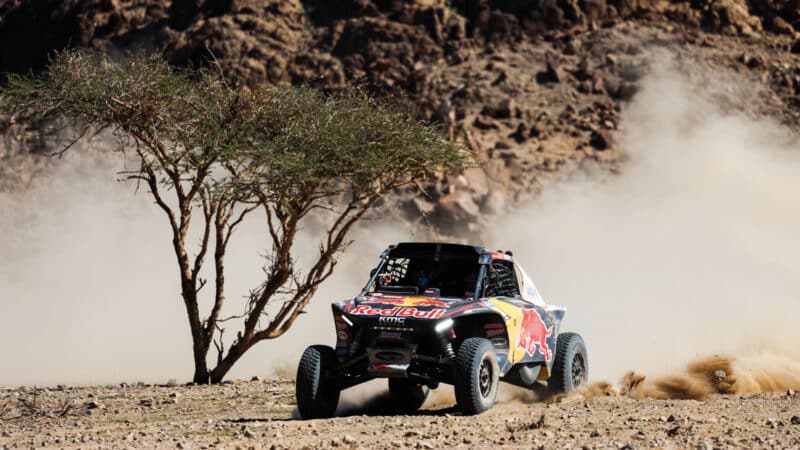
Cristina Gutiérrez in the T3 Challenger category. Next season she’ll be the Dacia team-mate of Sébastien Loeb
DPPI
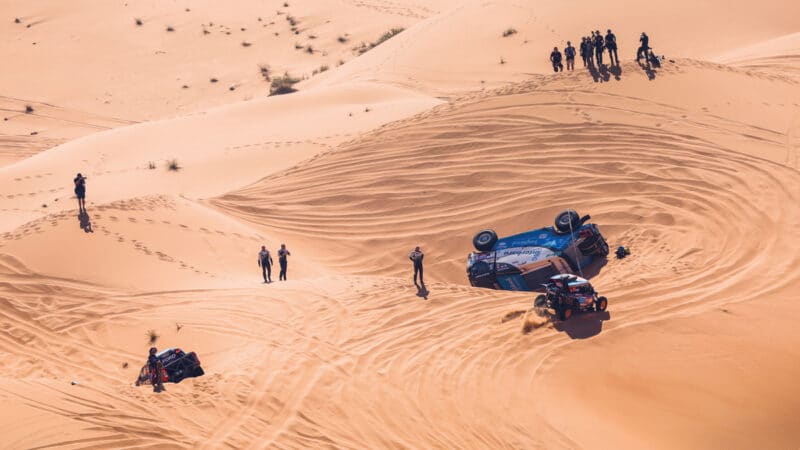
The bigger they are, the harder they fall.
DPPI
